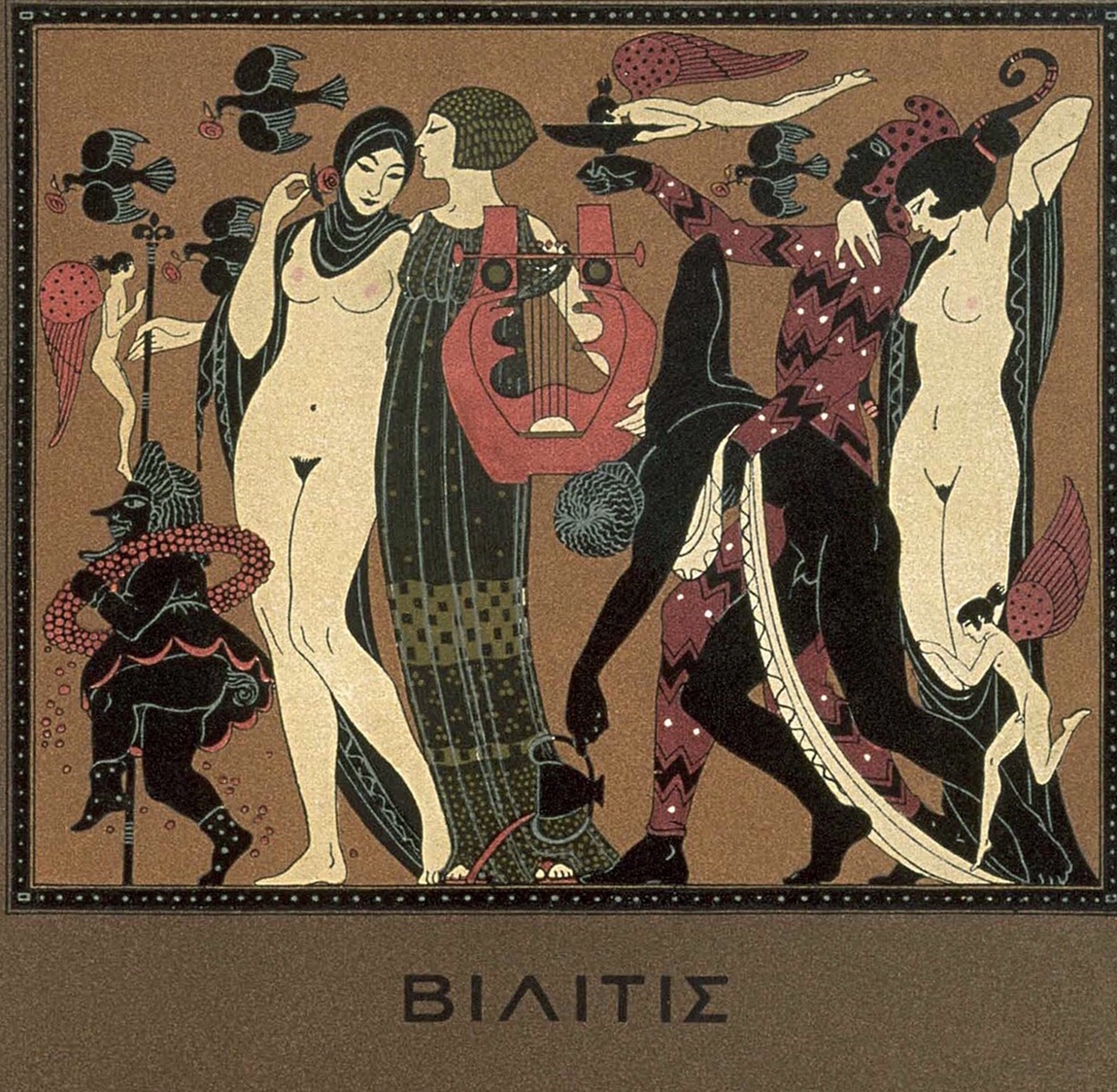 Illustration by Georges Barbier, 1922.
Illustration by Georges Barbier, 1922.
My good friends Alicia Crossley and the Acacia Quartet recently recorded my new work Three Bilitis Movements for an upcoming album, and already premiered the first movement at Extended Play. The entire work will be premiered at Sydney Opera House on December 8, 2018 in conjunction with the album release. Tickets here.
—
Like an eager sapling taking root, Three Bilitis Movements germinated from another commission I was fulfilling, to compose Debussy’s three unwritten final Sonates for his 2018 centenary.
Thus immersed in Debussy’s life, I reacquainted myself with Pierre Louÿs, the friend Debussy said he loved the most. Debussy had written three sets of works based on Louÿs’ poems. So I too wrote three movements based on Les Chansons de Bilitis.
This is a magnificently fake translation (in other words, an original work by Louÿs) of over 160 poems forming the memoir of a Greek courtesan named Bilitis who fictitiously lived at the time of Sappho. It was an instant hit, its inherent literary merits buoyed by the prevailing French taste for antiquity and erotic art.
Rather than choose whole poems, I made three centos from various poems on Les Chansons’ themes of the female body and nature. The second movement has a direct quote from the first piece of Debussy’s I ever played, the Sarabande of Pour le piano.
Three Bilitis Movements (excerpt from Drama with Music) was commissioned by Alicia Crossley.
I. The Dancers of Mytilene
II. The Rains of Spring and Morning
III. To invoke Pan, god of the summer wind
I. The Dancers of Mytilene
They danced one in front of the other, with a quick and fleeting movement; they always seemed to want to embrace each other, and yet did not touch, except on the lips.
When they turned their backs while dancing, they looked at each other, their heads on their shoulders, and the sweat shone under their raised arms, and their fine hair passed in front of their breasts.
The languor of their eyes, the fire of their cheeks, the gravity of their faces, these were three ardent songs.
Furtively they brushed against each other, bending their bodies at the hip.
Three dance the kordax with scarf and phallos. Nepheles with smooth armpits will mimic the love of the dove between her rose-colored breasts.
A singer in embroidered peplos will sing songs of Rhodes, accompanied by two flautists who will have garlands of myrtle entwining their brown legs.
II. The Rains of Spring and Morning
The fine rain has moistened everything, very gently, and in silence. I venture out under the trees, barefoot, so as not to stain my shoes.
The spring rain is delicious. The branches laden with wet flowers have a fragrance that makes me pause.
The delicate skin of the barks shines in the sun.
Alas, flowers on the ground! Have pity on the fallen flowers. They must not be swept away and mixed with the mud; leave them for the bees.
In the morning rain, I write these verses on the sand. The leaves are laden with shiny water. The rain, dripping, makes holes in my song.
The youngest do not look at me; the older ones have forgotten me. It’s all right. They will learn my verses, as will the children of their children.
III. To invoke Pan, god of the summer wind
We sing a pastoral song, to invoke Pan, god of the summer wind.
A hot air like human breath caresses my eyes and my cheeks. The wind that breathes is my breath.
For nothing is as divine on earth like the fragrance of roses in the night. How is it that when I was alone I did not feel intoxicated?
Poems adapted by Lyle Chan from Pierre Louÿs’ French originals.

